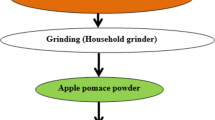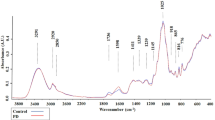Abstract
IN a recent communication1, the preparation of apple seed extracts capable of stimulating the development of unfertilized tomato ovaries was described. Treatment of the seeds with water at 100° C. for 15 minutes gave, on cooling, a crystalline substance which preliminary tests indicated was possibly glycosidic in nature. While not possessing the fructigenic activity shown by the aqueous filtrate, this compound disappeared at the stage when the extracts were no longer active, and consequently further investigation was indicated.
This is a preview of subscription content, access via your institution
Access options
Subscribe to this journal
Receive 51 print issues and online access
$199.00 per year
only $3.90 per issue
Buy this article
- Purchase on SpringerLink
- Instant access to the full article PDF.
USD 39.95
Prices may be subject to local taxes which are calculated during checkout
Similar content being viewed by others
References
Luckwill, L. C., Nature, 158, 663 (1946).
Johnson, F. R., and Robertson, A., J. Chem. Soc., 21 (1930).
Fischer, E., and Nouri, O., Ber., 50, 611 (1917).
Muller, A., and Robertson, A., J. Chem. Soc., 1170 (1933).
Author information
Authors and Affiliations
Rights and permissions
About this article
Cite this article
WOODCOCK, D. Isolation of Phloridzin from Apple Seeds. Nature 159, 100 (1947). https://doi.org/10.1038/159100a0
Issue date:
DOI: https://doi.org/10.1038/159100a0



